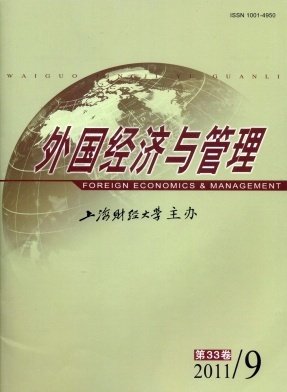国外无意识消费行为研究述评
外国经济与管理 2011 年 第 33 卷第 09 期, 页码:51 - 58
摘要
参考文献
摘要
与目前将消费行为作为一种有意识的理性决策过程来加以研究的主流理论不同,无意识消费行为理论为我们更全面地理解消费行为提供了一个全新的视角。本文分析了无意识消费行为的内涵及习惯性、冲动性、快速性特征,论述了无意识消费行为在知觉系统、评价系统、激励系统和情感系统共同作用下的产生机制,介绍了高端和低端两个层次的无意识消费行为以及无意识消费行为的测量方法,并指出了未来的研究要点。
①G.J.费兹西蒙斯指出,传统的销售预测、新产品上市、广告创意等方面的营销决策所依据的消费者行为分析方法,忽视了方法本身对消费者行为的影响。费兹西蒙斯在自己所做的一系列市场行为实验研究中发现,消费者往往会因为自己身处消费行为测试之中,或者是由于测试者所提问题的倾向性而产生意识之外的态度、评价和意愿。参见:G J Fitzsi mons,and S Baba.Nonconscious and con-taminative effects of hypothetical questions on subsequent decision making[J].Journal of Consumer Research,2001,28(2):224-238。
[1]J R Bett man,MF Luce,and J WPayne.Constructive consumer choice processes[J].Journal of Consumer Research,1998,25(3):187-217.
[2]A Schopenhauer.Essays and aphorisms[M].London:Penguin,1970:123-124.
[3]F Acker.Newfindings on unconscious versus conscious thought in decision making[J].Judgment and Decision Making,2008,3(4):292-303.
[4]A Dijksterhuis,et al.The unconscious consumer:Effects of environment on consumer behavior[J].Journal of Consumer Psy-chology,2005,15(3):193-202.
[5]T L Chartrand,A N Dalton,and GJ Fitzsi mons.Nonconscious relationship reactance[J].Journal of Experi mental Social Psy-chology,2007,43(5):719-726.
[6]J A Bargh,and E Morsella.The unconscious mind[J].Perspectives on Psychological Science,2008,3(1):73-79.
[7]R K Ohme.The i mplicit conditioning of consumer attitudes[J].Polish Psychological Bulletin,2001,32(1):65-72.
[8]R F Baumeistar,et al.Free will in consumer behavior:Self-control,ego depletion,and choice[J].Journal of Consumer Psychol-ogy,2008,18(1):4-13.
[9]A班杜拉.思想和行动的社会基础———社会认知论[M].上海:华东师范大学出版社,2001:66-67.
[10]ML Fransen,et al.Rest in peace?Brand-induced mortality salience and consumer behavior[J].Journal of Business Research,2008,61(10):1 053-1 061.
[11]T L Chartrand,and J A Bargh.Nonconscious motivations:Their activation,operation,and consequences[A].in A Tesser,DStapel,and J Wood(Eds.).Self and motivation:Emerging psychological perspectives[C].Washington,DC:American PsychologicalAssociation Press,2002:13-41.
[12]M WBos,A Dijksterhuis,and van Baaren,R B.On the goal-dependence of unconscious thought[J].Journal of Experi mentalSocial Psychology,2008,44(4):1 114-1 120.
[13]G MFitzsi mons,et al.Automatic effects of brand exposure on motivated behavior[J].Journal of Consumer Research,2008,35(1):21-35.
[14]J Haidt,et al.Individual differencesin sensitivity to disgust:Ascale sampling seven domains of disgust elicitors[J].Personali-ty and Individual Differences,1994,16(5):701-713.
[15]L Johnston.Behavioral mi micry and stigmatization[J].Social Cognition,2002,20(1):18-35.
[16]T L Chartrand,and J A Bargh.The chameleon effect:The perception-behavior link and social interaction[J].Journal of Per-sonality and Social Psychology,1999,76(6):893-910.
[17]V G Morwitz,et al.Does measuringintent change behavior?[J].Journal of Consumer Research,1993,20(1):46-61.
[18]J Sengupta,and GJ Fitzsi mons.The effects of analyzing reasons for brand preferences:Disruption or reinforcement[J].Jour-nal of Marketing Research,2000,37(3):318-330.
[1]J R Bett man,MF Luce,and J WPayne.Constructive consumer choice processes[J].Journal of Consumer Research,1998,25(3):187-217.
[2]A Schopenhauer.Essays and aphorisms[M].London:Penguin,1970:123-124.
[3]F Acker.Newfindings on unconscious versus conscious thought in decision making[J].Judgment and Decision Making,2008,3(4):292-303.
[4]A Dijksterhuis,et al.The unconscious consumer:Effects of environment on consumer behavior[J].Journal of Consumer Psy-chology,2005,15(3):193-202.
[5]T L Chartrand,A N Dalton,and GJ Fitzsi mons.Nonconscious relationship reactance[J].Journal of Experi mental Social Psy-chology,2007,43(5):719-726.
[6]J A Bargh,and E Morsella.The unconscious mind[J].Perspectives on Psychological Science,2008,3(1):73-79.
[7]R K Ohme.The i mplicit conditioning of consumer attitudes[J].Polish Psychological Bulletin,2001,32(1):65-72.
[8]R F Baumeistar,et al.Free will in consumer behavior:Self-control,ego depletion,and choice[J].Journal of Consumer Psychol-ogy,2008,18(1):4-13.
[9]A班杜拉.思想和行动的社会基础———社会认知论[M].上海:华东师范大学出版社,2001:66-67.
[10]ML Fransen,et al.Rest in peace?Brand-induced mortality salience and consumer behavior[J].Journal of Business Research,2008,61(10):1 053-1 061.
[11]T L Chartrand,and J A Bargh.Nonconscious motivations:Their activation,operation,and consequences[A].in A Tesser,DStapel,and J Wood(Eds.).Self and motivation:Emerging psychological perspectives[C].Washington,DC:American PsychologicalAssociation Press,2002:13-41.
[12]M WBos,A Dijksterhuis,and van Baaren,R B.On the goal-dependence of unconscious thought[J].Journal of Experi mentalSocial Psychology,2008,44(4):1 114-1 120.
[13]G MFitzsi mons,et al.Automatic effects of brand exposure on motivated behavior[J].Journal of Consumer Research,2008,35(1):21-35.
[14]J Haidt,et al.Individual differencesin sensitivity to disgust:Ascale sampling seven domains of disgust elicitors[J].Personali-ty and Individual Differences,1994,16(5):701-713.
[15]L Johnston.Behavioral mi micry and stigmatization[J].Social Cognition,2002,20(1):18-35.
[16]T L Chartrand,and J A Bargh.The chameleon effect:The perception-behavior link and social interaction[J].Journal of Per-sonality and Social Psychology,1999,76(6):893-910.
[17]V G Morwitz,et al.Does measuringintent change behavior?[J].Journal of Consumer Research,1993,20(1):46-61.
[18]J Sengupta,and GJ Fitzsi mons.The effects of analyzing reasons for brand preferences:Disruption or reinforcement[J].Jour-nal of Marketing Research,2000,37(3):318-330.
引用本文
张敏. 国外无意识消费行为研究述评[J]. 外国经济与管理, 2011, 33(9): 51–58.
导出参考文献,格式为:
下一篇:管理学文献综述类文章写作方法初探





 9466
9466  846
846

